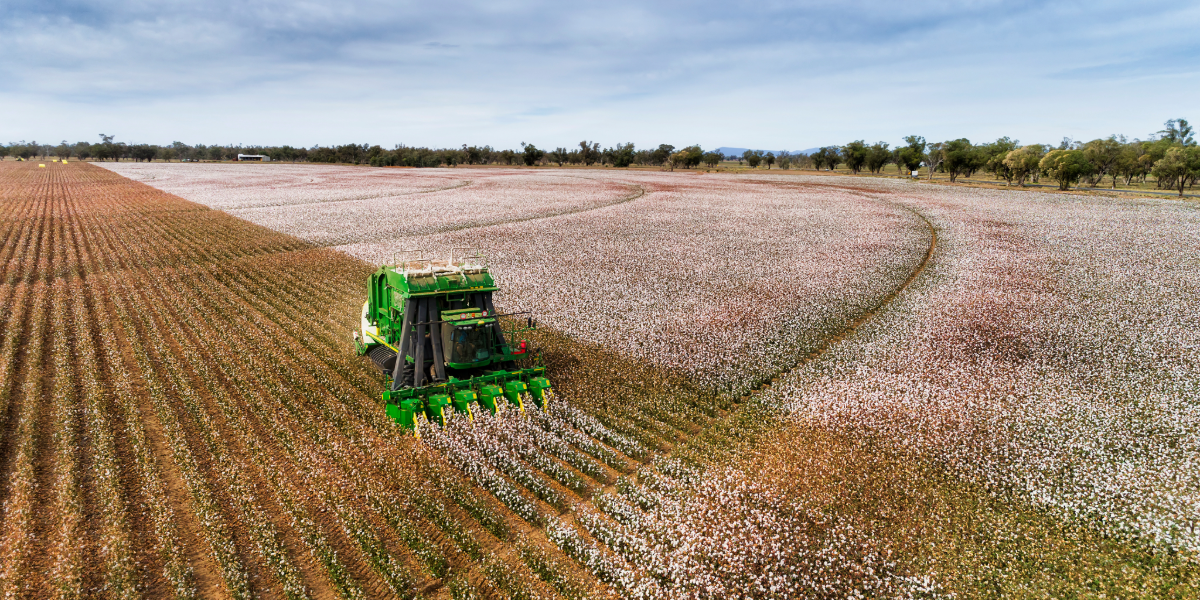Described as environmentally “destructive” by conservationists, the cotton industry can get a bad rap, but growers are trying to shake that image.
“It’s a misinterpretation to say that cotton crops are environmentally unfriendly,” Cotton Research Development Corporation’s innovation boss Meredith Conaty says.
“Cotton growers are in it for the long term and that means they have to look after their soil.”
In work commissioned by the corporation, researchers are examining how soil health on cotton farms can be improved by using cover crops.
Cover crops are planted to cover the soil rather than for harvest and help manage soil erosion, soil fertility, soil quality, water, weeds and pests.
“We’ve known for a long time that cover crops work, but we’re really trying to get that in a regionally specific way,” Ms Conaty says.
The idea is the information gathered will help growers understand how they can boost their soil health depending on where they are.
Eight farms across NSW and Queensland are taking part in the three-year research study which is about half way through and being led by the University of Sydney’s Tom O’Donoghue.
Dr O’Donoghue says the trials are helping to bring digital agriculture to the regenerative agriculture space.
“We think it should be defined in terms of outcomes, you know, improve the soil function, improve the biodiversity,” he says.
“We’re putting cover crops in to stimulate the soil life, the biology, so that when we do put the next cotton crop in, it will have a better chance,” the researcher says.
Boss of the research corporation Allan Williams says the cotton industry’s environmental credentials have been boosted, with growers doubling the amount of crop grown per unit of water over thirty years.
And while the use of cover crops and crop rotation are not new, he says what is new is the push for more regenerative agricultural practices to be used.
“With this focus on regen ag from the supply chain … I think a lot of cotton farmers would say we’re doing that already,” Mr Williams says.
“If you improve soil health, then you will also improve its ability to hold water and also therefore your water use efficiency,” he says.
While admitting that irrigating cotton can be “unpopular” because of limited water availability Ms Conaty says the industry is doing its bit.
“We take a really holistic view of the industry and of the environment that we work in, and that includes caring for the long term health and resilience of our soils,” Ms Conaty says.
Like what you’re reading? Support New England Times by making a small contribution today and help us keep delivering local news paywall-free. Support now


